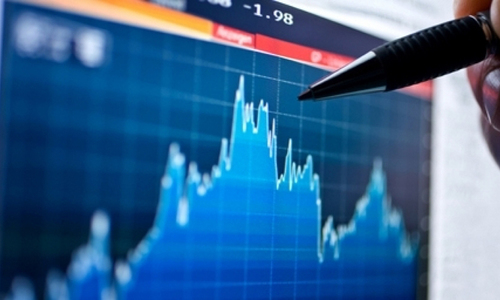
ISLAMABAD: Despite the apparent short-term control over current account deficit (CAD), the government’s policies suggest Pakistan’s economy is to stay in the low growth, low export and close to default position, a report issued on Tuesday by a think tank said.
The Institute of Policy Reforms (IPR), a think tank led by PTI leader Humayun Akhtar, in its latest report on foreign aid and purpose advised that the government should slow down foreign borrowing instead of trying to grab every opportunity to procure more foreign loans.
It said the government has controlled the CAD at present but “the respite is precarious and likely short lived”. All indications suggest “the economy would stay in its present state of low growth, low exports, and close to default”, it added.
The IPR report anticipated further devaluation of the rupee or a more restrictive monetary policy and even more increase in administered prices. If all of that happens, the cure may turn out to be worse than the disease, the report said, adding the people of Pakistan were paying a huge cost for years of poor economic management.
IPR advises govt to slow down foreign borrowings
The most critical problem faced by Pakistan’s economy is repayment and servicing of external debt and years of ill-advised financial management has brought this stage. In the last ten years, external debt servicing (principal and interest) has ranged between one per cent of GDP in FY14 to almost 5pc of GDP in FY20. Remitting such large sums of money overseas without drawing any productive benefit from it, is a loss to the economy.
In FY20, principal and interest paid to Rs2.3 trillion to foreign creditors – almost twice the Rs1.2tr amount spent on all development, federal and provincial. Just interest paid to foreign creditors stood at Rs406 billion – one-third of total development.
New external loans, often at high commercial rates, are taken to service past debt, a solution fraug1ht with risks, but one that has become especially acute in recent years. “In essence, the economy is in a debt trap,” the report underscored.
In addition, Pakistan remits over 0.5pc of GDP in foreign direct investment (FDI) profits annually. While this is a necessary part of FDI, these are not export oriented investments. Remittance of profits adds to forex squeeze.
Also, in FY 19 and FY 20, outflow of foreign private funds invested in Pakistan government’s debt instruments amounted to $1,002 million and $241 million, respectively. This debt was incurred at a very high cost of up to 13pc. “Pakistan must end its preference for accessing any available foreign fund regardless of interest cost,” the report said, adding the country must take a deep look at its public fiscal management, i.e., how it raises funds (revenue and debt) and what it spends that money on.
In the last twenty years, Pakistan has paid external creditors more than it has received from them. Yet its external debt has grown by over 200pc from $37.2bn in FY01 to $112.9bn in FY20. We may have paid back the original loan more than once and still owe it to the creditor, the think tank noted.
Between FY01 and FY20, external debt disbursed to Pakistan totalled $112.6bn. During the same period, it has paid to foreign creditors a sum of $117.9bn in principal and interest. That is, it has paid back $5.2bn more than it received, a negative resource transfer. Of the $117.9bn paid, $90.6bn was principal, and $27.2bn was interest. Average annual interest paid was US $1.4bn. This is the result of borrowing to service past debt and the effect of compounding, which makes even concessional credit expensive. As a result, most solvency and liquidity indicators have worsened in recent years.
Taking another measure, the government of Pakistan spends the bulk of government revenue on paying interest on public debt. In the last ten years, it has spent annually an average of 60pc of federal net revenue receipts on interest payment (on both domestic and external debt). In FY19, interest payment was 103pc of net revenue receipts. That is every government expense other than interest payment was met from loans.
Two approaches define Pakistan’s economic policy making. For years, it has tried to deal with macro issues through macro policy. Economic growth, which would yield tax revenues and export earnings has not been a priority. Second, it has not made sufficient effort to control expenditure on subsidies and security, preferring to borrow from both within and outside the country to meet these expenses.
The government’s logic for incurring foreign debt is that it helps economic development and macro stability, yet all evidence is to the contrary. Most macroeconomic or GDP growth indicators have worsened during the last twenty years. Seen over 20 years, the fiscal and current account deficits have stayed high, inflation has resisted a tight monetary policy, and rupee value has weakened consistently. Many a times, we have put controls on imports and have repeatedly sought IMF help.
Published in Dawn, April 21st, 2021













































